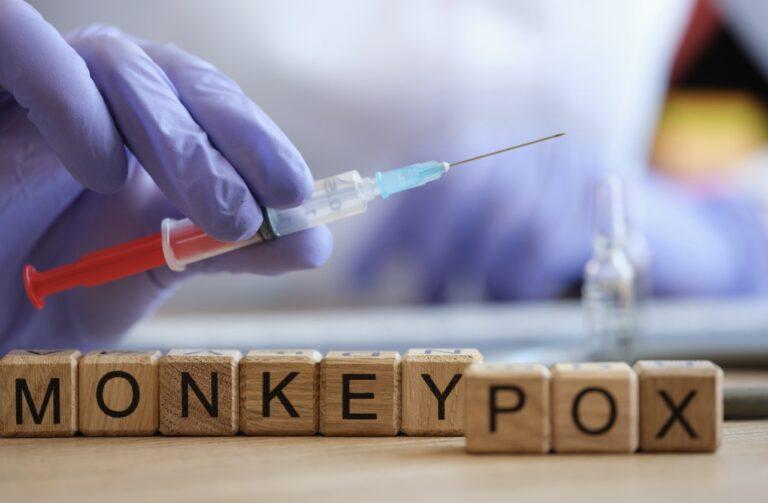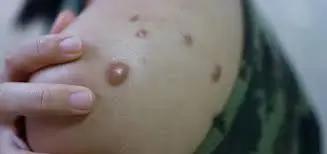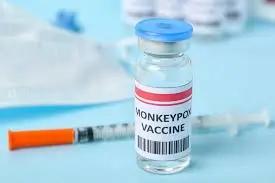
September 17, 2025 (Current Version)
March 28, 2025
The recent global outbreak of monkeypox, now referred to as mpox by The World Health Organization (WHO) has raised many questions about the nature of this viral infectious disease. One of the key concerns is whether individuals can contract mpox more than once.
In this article, we will delve into the latest research and insights on the possibility of mpox reinfection. By the end of this guide, you’ll have a better understanding of what mpox is, the symptoms and the risks and challenges surrounding mpox reinfections.
Understanding the Mpox Virus
Mpox, or monkeypox, is caused by the monkeypox virus, a member of the Orthopoxvirus genus within the Poxviridae family. This virus is closely related to the variola virus, which was responsible for the dreaded smallpox disease. While smallpox has been eradicated, mpox remains a persistent threat, particularly in certain regions of Africa, where it is endemic.
The monkeypox virus is categorised into two distinct groups:
- Clade I, also known as the Central African clade, is typically associated with more severe disease manifestations and a higher mortality rate
- Clade II, or the West African clade, is generally considered to be milder in its clinical presentation
The current global outbreak, which began in 2022, has been primarily driven by the Clade IIb subtype, a less severe variant of the West African clade. However, it’s important to note that the dynamics of mpox transmission can vary based on geographical location, and the emergence of new viral strains or subclades is an ongoing concern.
Symptoms of Mpox
The initial symptoms of mpox typically include:
- Fever
- Headache
- Muscle aches
- Backache
- Swollen lymph nodes
- Chills
- Exhaustion
These flu-like symptoms are often followed by the development of a characteristic rash, which sometimes gets confused with chickenpox. The rash can appear on the face, hands, feet, genitals, or other parts of the body. The rash changes through various stages, starting as flat red spots, progressing to fluid-filled blisters or skin lesions and eventually forming scabs that eventually fall off.
It’s important to note that not everyone with mpox will experience all of these symptoms, and the severity of the illness can vary greatly, with some individuals experiencing a milder form of the disease.
How do you get Mpox?
Monkeypox can be spread through a variety of ways:
Person-to-person close contact
The main way the mpox virus spreads is through close, intimate physical contact with an infected individual including direct skin-to-skin contact, such as during sexual contact and cuddling, or kissing.
Animal-to-human spread
In areas such as parts of Africa, the virus can also be transmitted from infected animals to humans. This typically occurs through direct contact with the blood, bodily fluids, or lesions of infected wild animals, such as rodents, monkeys, and other small mammals.
Contaminated surfaces
The monkeypox virus can survive on various surfaces and materials, including clothing, bedding, towels, and other shared objects. Touching these contaminated items can result in the transmission of the virus to uninfected individuals.
Mpox immunity
Studies have shown that individuals who were previously vaccinated against smallpox or had a natural infection with Variola virus were less likely to be infected by mpox and tended to experience milder disease symptoms.
However, since the eradication of smallpox, the weakening immunity in previously vaccinated or infected individuals has seen a reoccurance of mpox in endemic regions of Africa.
Cases of Mpox reinfection
One of the first documented cases of mpox reinfection was reported by Golden et al. in 2022, which highlighted the potential for individuals to contract the virus more than once.
In this case, a healthy young man was first diagnosed with mpox in May 2022. About six months later, in November 2022, the same individual had inflammation of the lining of the rectum (proctitis) and tested positive for mpox again, this time after a trip to Brazil where he had engaged in unprotected sexual contact with multiple partners.
The case report suggests that the patient’s initial infection did not provide long-lasting immunity to prevent a subsequent reinfection.
Concerns of mpox reinfections
The potential for mpox reinfections has significant implications for public health. If mpox reinfections become more common, it could lead to a rise in cases, where individuals may unknowingly transmit the virus to others. This could, in turn, fuel the ongoing outbreak and make it more challenging to control the spread of the disease.
Factors influencing mpox reinfection risk
Several factors have been identified as playing a role in mpox reinfection:
Waning immunity
While historical smallpox infection or vaccination was believed to provide long-lasting cross-immunity against mpox, the duration and strength of this protection may vary among individuals.
Viral exposure
The intensity of viral exposure, particularly through high-risk activities like unprotected anal sex, may overwhelm the immune response and lead to reinfection, even in individuals with prior mpox infection.
Genetic factors
While the current mpox outbreak has been mainly due to Clade II, the emergence of new variants or clades could potentially attack the immune responses generated by previous infections or vaccinations.
Screening and vaccination
The growing evidence of mpox reinfections has raised important considerations for public health authorities and healthcare providers:
- Expanded Screening: Clinicians should be aware that individuals with a history of mpox infection may still be susceptible to reinfection, and should consider testing for MPXV in patients with compatible symptoms, regardless of their prior infection status
- Vaccination for Recovered Individuals: The potential for reinfection may prompt public health authorities to consider extending mpox vaccination to individuals who have already recovered from the disease, to provide more robust and long-lasting protection
- Monitoring Reinfection Trends: Ongoing surveillance and data collection on mpox reinfections will be crucial to understand the true incidence, risk factors, and clinical implications of this phenomenon. This information will inform future public health strategies and guide the development of more effective prevention and treatment measures
Prevention
There are steps that individuals can take to protect themselves and those around them:
- Vaccination: Individuals at risk of exposure to mpox should consider getting vaccinated, even if they have previously had the disease. The current vaccines have been shown to provide some level of protection, and may be particularly important for those with waning immunity or underlying health conditions
- Avoiding high-risk exposures: Individuals should continue to practice safe behaviours, such as avoiding close, skin-to-skin contact with those who have mpox, and limiting sexual activity with multiple or anonymous partners in outbreak areas
- Prompt testing: Anyone with suspected mpox symptoms should seek medical attention and get tested quickly. Early detection and isolation can help prevent further spread of the virus
- Hygiene and cleaning: Maintaining good hygiene, cleaning frequently touched surfaces, and avoiding shared personal items can help reduce the risk of spread, even in the context of potential reinfection
Conclusion
Mpox reinfection remains a concern and is an area of ongoing research. Expanded screening, consideration of vaccination for recovered individuals, and enhanced surveillance will be crucial in mitigating the impact of mpox reinfections on individuals and community health.
Sources
- Mpox – WHO
- Mpox Vaccine Recommendations – Mpox – Poxvirus – CDC
- A Case of Mpox Reinfection – PMC
Medical Disclaimer
NowPatient has taken all reasonable steps to ensure that all material is factually accurate, complete, and current. However, the knowledge and experience of a qualified healthcare professional should always be sought after instead of using the information on this page. Before taking any drug, you should always speak to your doctor or another qualified healthcare provider.
The information provided here about medications is subject to change and is not meant to include all uses, precautions, warnings, directions, drug interactions, allergic reactions, or negative effects. The absence of warnings or other information for a particular medication does not imply that the medication or medication combination is appropriate for all patients or for all possible purposes.







